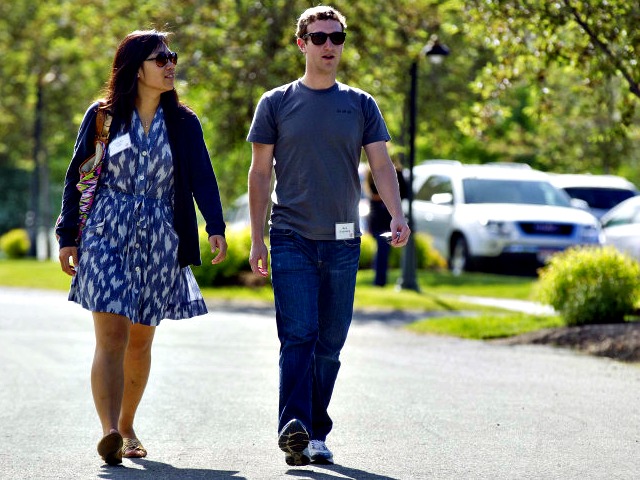On Monday, Facebook co-founder Mark Zuckerberg announced that he and his wife Priscilla, a doctor, “are donating $25 million to the Centers for Disease Control Foundation to help fight Ebola.” Zuckerberg and his pro-open borders lobbying group FWD.us spent a like amount this year to get amnesty and more guest-worker visas.
“The Ebola epidemic is at a critical turning point. It has infected 8,400 people so far, but it is spreading very quickly and projections suggest it could infect 1 million people or more over the next several months if not addressed,” Zuckerberg wrote on his Facebook page. “We need to get Ebola under control in the near term so that it doesn’t spread further and become a long term global health crisis that we end up fighting for decades at large scale, like HIV or polio.”
Zuckerberg’s donation will no doubt make a huge and immediate difference, but the best way to contain the Ebola virus may be to limit visas and not push for the open borders policies that Zuckerberg has advocated. In fact, Zuckerberg’s FWD.us group has spent at least $25 million this election cycle for pro-amnesty candidates and causes, which equals Zuckerberg’s donation to help combat Ebola. High-tech groups have demanded massive increases in guest-worker visas that would lower the wages of American workers, even though there is not a shortage of American high-tech workers.
Travel bans and visa limitations may be the better short-term ways to prevent Ebola from coming to America. On Sunday, House Homeland Security Chair Mike McCaul (R-TX) said that the U.S. should consider suspending visas from West Africa until Ebola is better contained.
Thomas Eric Duncan, the first person to be diagnosed with Ebola on American soil, entered the country on a visa under suspicious circumstances. (He should never have been awarded one.) After his death, a Texas nurse who had been treating him contracted Ebola, becoming the first American on U.S. soil to get Ebola via person-to-person transmission.
Zuckerberg said he hoped his grant “is the quickest way to empower the CDC and the experts in this field to prevent this outcome” and would “help the frontline responders in their heroic work.”
“These people are on the ground setting up care centers, training local staff, identifying Ebola cases and much more,” he added. “We are hopeful this will help save lives and get this outbreak under control.”

COMMENTS
Please let us know if you're having issues with commenting.